Zipper spiders belong to the family Araneidae. They are among the most common spiders, which are abundant in Canada and the USA. The vertical zigzag patterns in its web earned them the name “writing spiders”.
Are zipper spiders poisonous? Despite their relatively large size, zipper spiders are harmless. When disturbed, these spiders would flee rather than initiate an attack. However, getting bitten by these spiders could trigger an allergic reaction.
Although zipper spiders are neither poisonous nor dangerous, some people consider them a nuisance, especially since some of their large webs are placed in inconvenient locations. This article contains more information about these spiders, including their appearance, prey, the structure of their webs, and habitat, among others.
What Exactly Are Zipper Spiders?
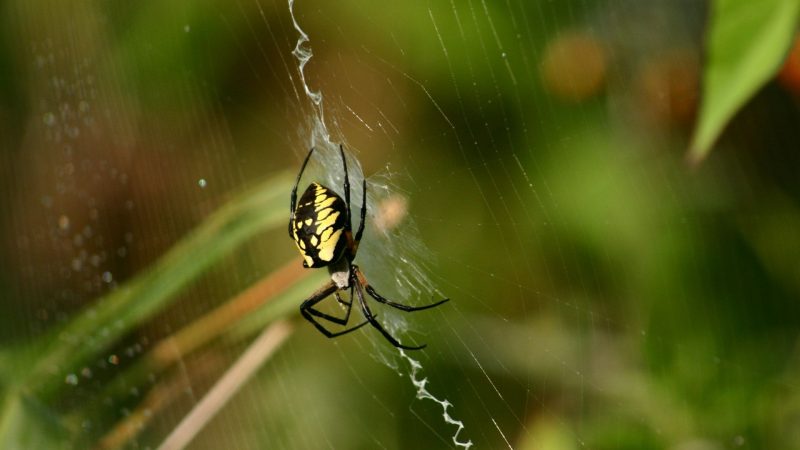
Zipper spiders (Argiope aurantia) are known by a lot of names. They are often referred to as orb weavers, garden spiders, writing spiders, or corn spiders. These spiders are one of the most common spiders and are found in almost all habitats on Earth.
They are relatively large spiders, with males being smaller (less than 0.24”) than females (up to 1.10”). As with other spiders, zipper spiders have four pairs of legs and two body sections: cephalothorax and abdomen. Aside from their relatively large size, the silvery hairs covering their cephalothorax and the black and yellow markings on their abdomen make zipper spiders distinguishable.
Zipper Spider Webs | Identification
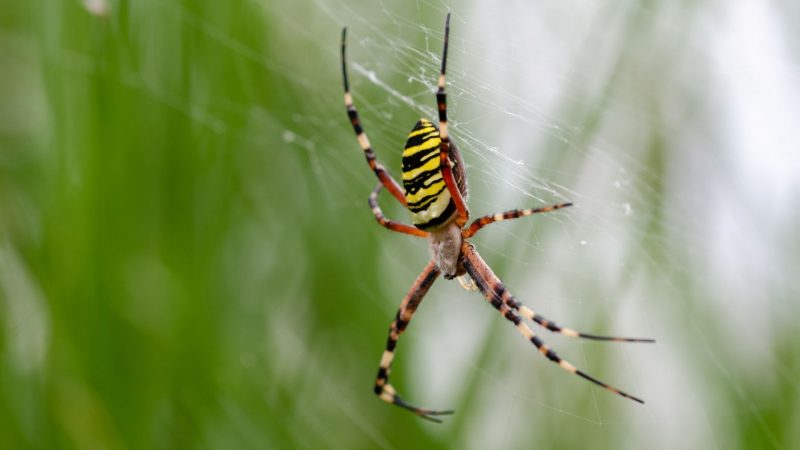
Zipper spiders or orb weavers are so-named due to their ability to construct large, flat, and circular (orb) webs. Across the center of its web, zipper spiders create a thick zigzag pattern of white silk called “stabilimentum.” The thickness of the silk indicates how well-fed a zipper spider is.
Webs of these spiders are built or repaired at night. They are commonly observed in areas with direct sunlight exposure. Typically, webs are placed at a height of 0.20” above the ground. This particular preference for higher locations increases as spiders mature.
In addition, juveniles are known to shelter their webs from the wind; however, once they reach the sixth instar up to the twelfth instar, zipper spiders no longer shield their webs from the wind.
Why Do Zipper Spiders Make Zippers?
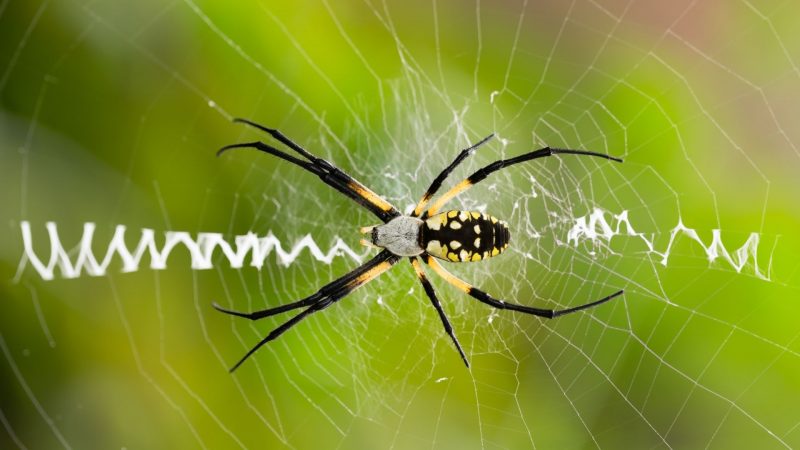
The reason why zipper spiders create a zigzag pattern at the center of their webs is still unknown. Still, many believe that this is intended to attract their prey and to help stabilize their web, given that they construct relatively large webs.
Zipper Spider Habitat

Zipper spiders are located in almost all habitats around the world. Geographically, they are commonly found in Canada and the USA. They are often found in grasslands, woodlands, and flower and vegetable gardens.
Compared with other spiders, zipper spiders are relatively easier to locate due to their size and the size of their webs. Similarly, the black and yellow markings on their abdomen also make them highly noticeable.
What Do Zipper Spiders Eat?
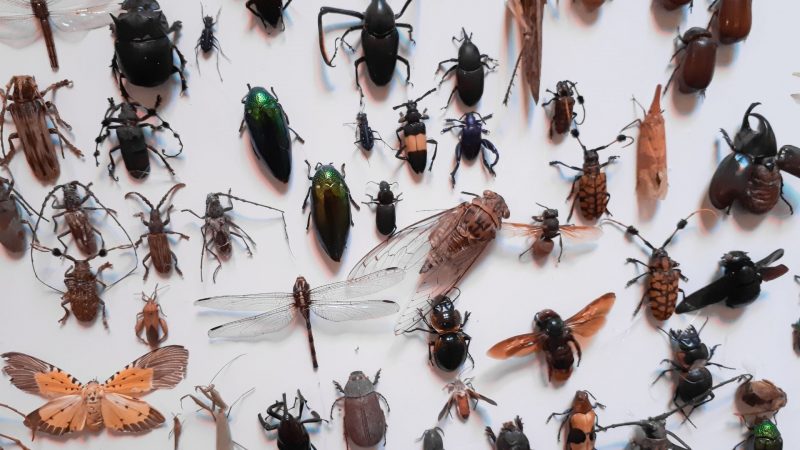
As with other spiders, zipper spiders feed on insects such as mosquitoes, grasshoppers, bees, gnats, damselflies, wasps, aphids, and other pests.
Vibrations are produced when insects get trapped in their web. Zipper spiders inject their prey with venom that paralyzes them before wrapping them in silk. Once their prey liquifies, the zipper spider will suck the liquids and mushy flesh out of its victim.
Are Zipper Spiders Dangerous?
Zipper spiders are not dangerous. Their bites, however, might cause sharp prick pain followed by redness and swelling. Although this is usually not a cause for concern, some may still experience an allergic reaction, especially for adults.
Are Zipper Spiders Aggressive?
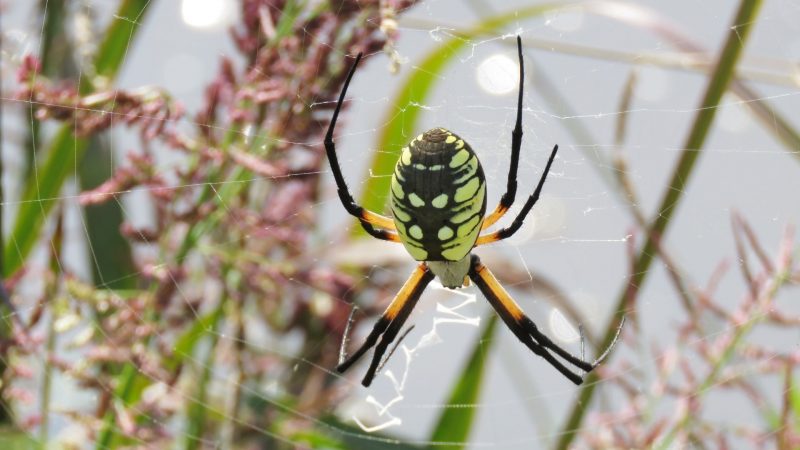
Zipper spiders are not known to be aggressive. They are not known to attack or bite humans unless they are trapped or threatened.
Are Zipper Spiders Poisonous to Dogs?

As with humans, zipper spiders are also not poisonous to pets.
What Are Zipper Spiders Good For?

Zipper spiders are beneficial as they feed on insects and pests that damage flower and vegetable gardens. Thus, some would consider their presence as a form of natural pest control.
Related: What Are Zipper Spiders and How to Control Them? | Identification and Control Guide
List of Sources
Yellow Garden Orb Weaver. Brandeis University.
Griffith, T., Gillett-Kaufman, J. (2019). Common Name: Yellow Garden Spider, Writing Spideren Spider. University of Florida.
Newton, B. (2010). Orb-Weaver Spiders. University of Kentucky.
Smith, B. (2020). Beneficial Yellow Garden Spiders. Clemson University.
- How to Get Rid of Copperheads | Practical Guide - August 27, 2023
- How to Get Rid of Corn Snakes | What Makes Them Aggressive? - August 27, 2023
- How to Get Rid of Alligators | Safety Measures and Removal Methods - July 16, 2023
